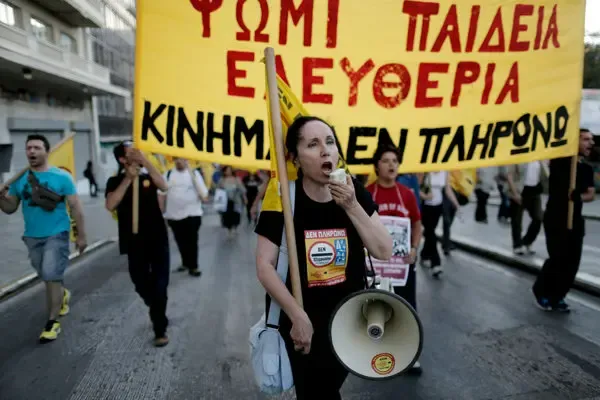Since 1960, Congress has raised the United States’ debt ceiling a total of 78 times, fostering the misconception that federal funds grow on trees. In contrast, those not backed by dollar hegemony are unable to freely borrow due to the constraints imposed by international financial markets.
At the same time, virtually every developing nation must take out loans to fund infrastructure development and address financial crises while maintaining economic stability. But, when a country cannot pay its debt back, sovereign defaults occur, creating widespread financial turmoil, as is what has recently happened in Ethiopia, Belarus, and Ghana.
The International Monetary Fund, an international organization established in 1944 during the aftermath of the Great Depression, has the ambitious intention of encouraging global economic growth by serving as a safety net for countries that rack up more debt than they can pay back. In essence, the organization negotiates bailouts so that countries can repay their lenders while also imposing fiscal policy restrictions that ensure the country can pay the IMF back too.
The idea is to prevent developing countries from defaulting on their loans, which create a decline in investment in production and reduce economic output by 10 percent. Empirically, this approach diminishes the likelihood of default by 37%. Ireland, Mexico, Argentina, Korea, Brazil, and nearly 80 other countries have benefitted from this process, effectively reducing both the impacts of financial crises and the likelihood of spill-over into broader regional issues.
However, amid evolving financial conditions, many have criticized the methodologies employed by the IMF. In exchange for debt relief, the IMF mandates cuts to public healthcare, education, and social spending to ensure that the country will garner the funds to pay them back.
Consequently, millions of public sector workers face layoffs, while those in the lowest income brackets lose access to essential services. For that reason, a 2011 study by the Education International Research Institute analyzed 45 developing countries that took IMF loans, finding that they all experienced per capita incomes below those of 10 to 25 years earlier, with the study isolating the unique impact of the IMF on economic recession-induced income declines.
Independently, the IMF facilitates the privatization of industries as a means of creating government revenue. In Africa, the IMF evicted a total of more than 12 million farmers from their land to sell it to private companies, causing widespread devastation in agricultural sectors. For example, in Malawi, the IMF’s suggestions played a direct role in the events leading up to the famine in 2002.
In Bolivia, the IMF pushed for privatization of the water sector, causing price hikes of up to 200% and depriving consumers of their right to safe water. This often forces individuals to turn to unsanitary water sources, causing outbreaks of diseases like Cholera.
Overall, while bailouts can generate short-term benefits for countries, it is important to consider the trickle-down impacts of the policies implemented by paternalistic institutions like the IMF, which, in some instances, can ultimately cause more harm than good.

